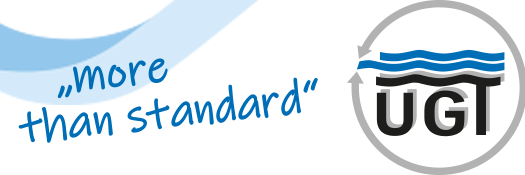I am an Indian PhD student working at the Chair of Hydrology and River Basin Management, Technical University of Munich. I am supervised by Prof. Dr.-Ing. Markus Disse (TU Munich) and Dr. Saket Pande (TU Delft). Within the framework of socio-hydrology, I am interested in developing a measurement driven decision support tool for irrigation management, which is easy to use by small-holder farmers in India.
 My profile www.waterandme.weebly.com/about
My profile www.waterandme.weebly.com/about
My research objectives
- To identify existing water-centric gaps in sustainability of Indian winter wheat cropping and understand their underlying causes using socio-hydrological modeling.
- To survey the state-of-the-art in field measurement technology and develop a working proficiency in monitoring relevant farm parameters: the ongoing internship at UGT is central to this objective.
- To understand and model the hydrological processes occurring in the farm using opensource plot-scale hydrology-crop models: amongst others, I am considering the FREEWAT model http://www.freewat.eu/.
- To design a Decision Support System (DSS) which integrates measured data, farm process modeling and communication modules for improved irrigation management using a mobilephone application which is easy to use for farmers/NGOs.
The conceptual description (see figure) indicates field instruments (shown in black colour) which would transfer the farm measurements wirelessly as model inputs for the farm model. The model would analyse current conditions with the optimal conditions, and recommend a gricultural management decisions (eg. for scheduling irrigation, shown here using groundwater pumping). A crucial prerequisite to ensure farmer adoption is extensive bidirectional interaction while preparing the DSS.

My background andmotivation: I have an integrated Master degree in Civil Engineering from the Indian Institute of Technology Kanpur (IITKanpur), with a major in Hydraulics and Water Resources Engineering. During my thesis, I focused on the hydrological effects of landuse change. I could sense a lack of stakeholder engagement in water management projects and hence made conscious efforts to understand the various stakeholder perspectives in small holder agriculture. In a project on participatory groundwater management at Samaj Pragati Sahayog (NGO in Madhya Pradesh, India), our team tested a community scale approach on water saving techniques in agriculture. Next, I worked in a project at IIT Kanpur where we conducted innovative interactions with villagers as preliminary preparation to establish a rural instrumentation network (Critical Zone Observatory). I am delighted that today, several out-door instruments provide realtime research grade data, despite the accompanying security risks in developing countries like India. I learnt that to design and solve morere levant research questions, it is essential to include “non-scientific” ground realities and engage stakeholders continuously to co-creates olutions which are both scientifically accurate and meaningful for the actual end-users.
